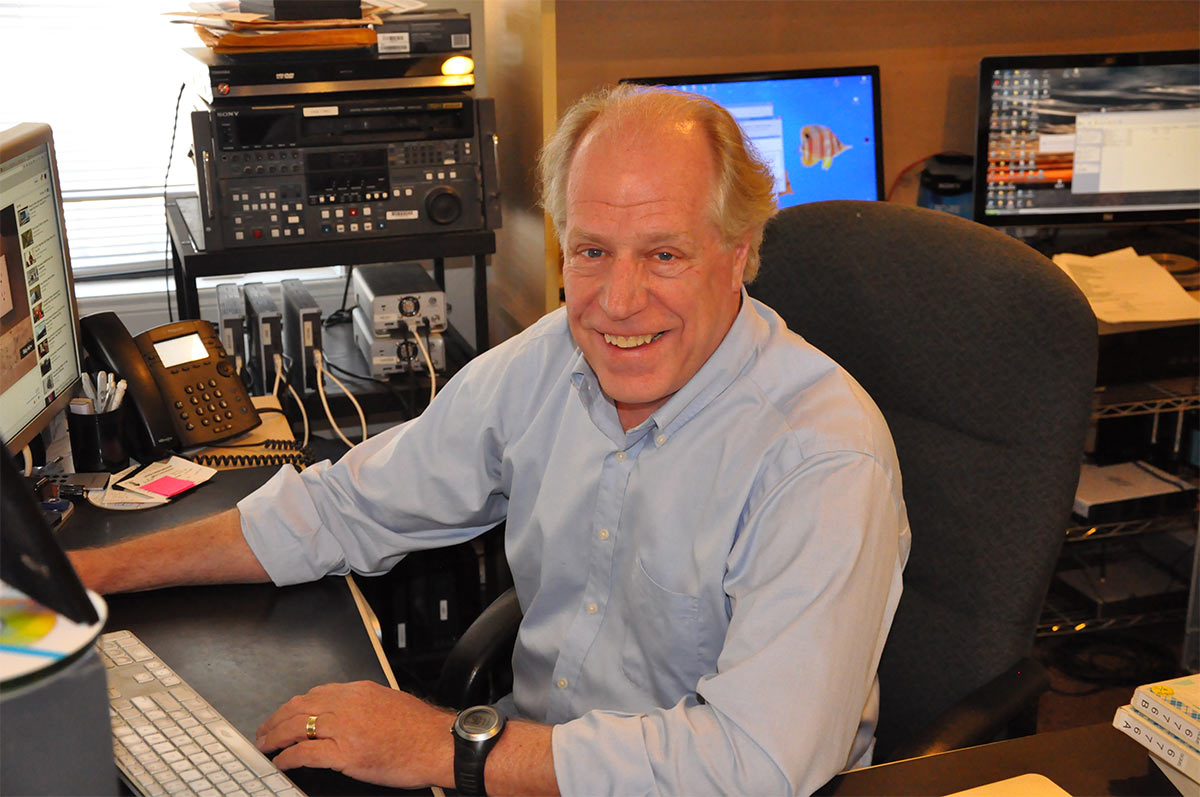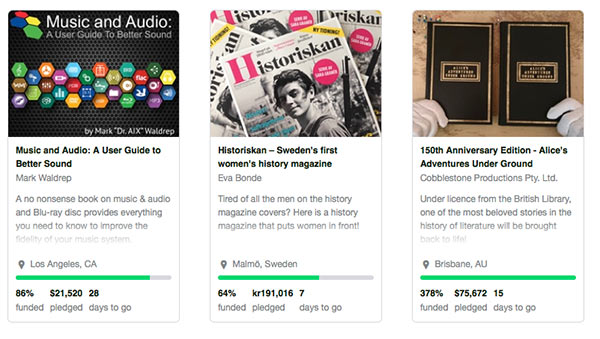Sometimes the Truth Hurts.
I can’t tell you how encouraged I am by the outpouring of support for the “Music and Audio: A User Guide to Better Sound” Kickstarter campaign. In just the first day, many of you and lots of others (280 supporters at last count) have raised the funding to 87% of the goal. Do you realize how amazing that is? I’ve been told that getting to 50% in the first 24-48 hours is fantastic…but we blew right through that number. The pace of our crowd sourcing was unique enough to get us the top slot in the KS “popularity” list in the publications sub category. But we’re not there yet…if you haven’t joined the effort, please consider grabbing one of the EARLY BIRD specials before they are all claimed.
Thanks very much to everyone for making the effort…it means a lot.
Here’s the proof:
Figure 1 – A screen shot of the KS popularity page under publications. “Music and Audio” is at the top!
+++++++++++++++++++++++++++++++++++++++++++++++++++++++++++++++++++++++
As a professional audio engineer and producer, I get a lot of unsolicited material from young artists. I do actually listen to everything that comes my way unless I have to go through major stress to get to the actual audio. If I music is pleasant, the sound reasonable, and the voice expressive, I will response to the sender with positive comments. If I find the song difficult to listen to, the sound poor, and the vocals buried in the mix…I usually politely beg off. If pressed, I’ll give my professional opinion. I try to avoid being nasty or too blunt. If there’s no talent there, it might be better to gently steer the person towards another career. In the long run, there’s a place for all of us. However, it might not be the place we dream about.
When I was a music student at CSUN, I had to audition on my performing instrument. Everyone had to have a “performing instrument” and since I was a guitar player (folk, jazz, and rock…not classical), I decided that I would pick piano. I am a competent pianist…but it was very painful. I was admitted to the music department and told to get my chops up in order to continue in the program. I can vividly remember exiting one of the auditions that I played (I played terribly!) with one of the piano faculty. He put his arm around my shoulder and counseled me as we walked down the hall. “Mark”, he asked, “are you really sure about this music thing?” I didn’t know how to answer.
Ultimately, I made it past the audition. I learned enough Bach, Beethoven, Chopin, and Ingolf Dahl to pass. Thankfully, I never had to perform a recital on the piano. I was a composition major. And I was an outstanding student. The doubt that the piano faculty member expressed was a catalyst to me. I graduated summa cum laude, was given a major university award for scholarship, and ultimately selected for a master class with Pierre Boulez. Not bad for someone that couldn’t make it through the F Major Bach Invention!
I succeeded at the things that were important to me…although I really wish I were a better keyboard player.



Mark,
Congratulations on the fast track with your Kickstarter campaign ! I’m happy to be among the first to jump into this exciting push for better audio & truth in HRA. That being said, I’m also cognizant of how painful criticism of ones musical abilities can be. I’m a self taught musician, I truly handicapped myself by that “virtue”, not taking courses or playing with other musicians cost me a lot of years wasted. Fortunately, after many years of frustration of just not quite being able to express myself musically, I’ve had many breakthroughs in recent years. I applaud your notion of not wanting to hurt anyone’s feelings but, as you know, we are our own toughest critics-often to severe degrees. Without criticism from professionals ilike yourself we are often self misdirected and stunted. Your, and other qualified professionals opinions are essential to a musicians growth. I’ve jumped off cliffs to hang glide, jumped out of planes parachuting. Nothing has ever frightened me as much as performing with other musicians on a stage in front of a crowd. About a year ago I played (lead guitar) with other musicians in front of a crowd for the first time- it was terrifying ! We played improvisational jazz, blues and rock. I learned a couple of things: #1 I didn’t suck nearly as bad as I had thought for years. Quite a few of my friends of many years were watching. Only one of them knew that I played! None expected my level of performance ( perhaps myself included) #2- the public, for the most part, doesn’t hear the mistakes as much as you’d think. And #3 it’s frightening, but it’s also extremely rewarding & exhilarating! Maybe it’s the old formula of risk and return. The next half dozen improv sessions varied with regard to my stage fright. The size of the crowd doesn’t have near the impact on me as does the impression I make with those around me on stage. I had one evening where my fingers wouldn’t respond to my brains commands-I’ll never forget how panicked I felt. I was overthinking things rather than living in the improvisational moment-I stepped off for a moment and returned fine after a fellow musician told me what I was doing. In the first 6-8 performances I’d never played with any of the musicians prior & felt obligated to tell them how green I was to playing. A few musicians have been very helpful by telling me the truth about a technique or technicality I was screwing up, I sensed their apprehension in their voices too. I always express my gratitude for their help. Unknowingly, some musicians who have been very polite, & afraid to hurt anyone’s feelings also hurt the performance. It’s those experiences do nothing for my desire to become the musician I want to be. It isn’t their job or obligation to help me become better. If you don’t know something is broken, how on earth could you fix it?
Thanks for All You Do,
Bruce B.
Good work Bruce!